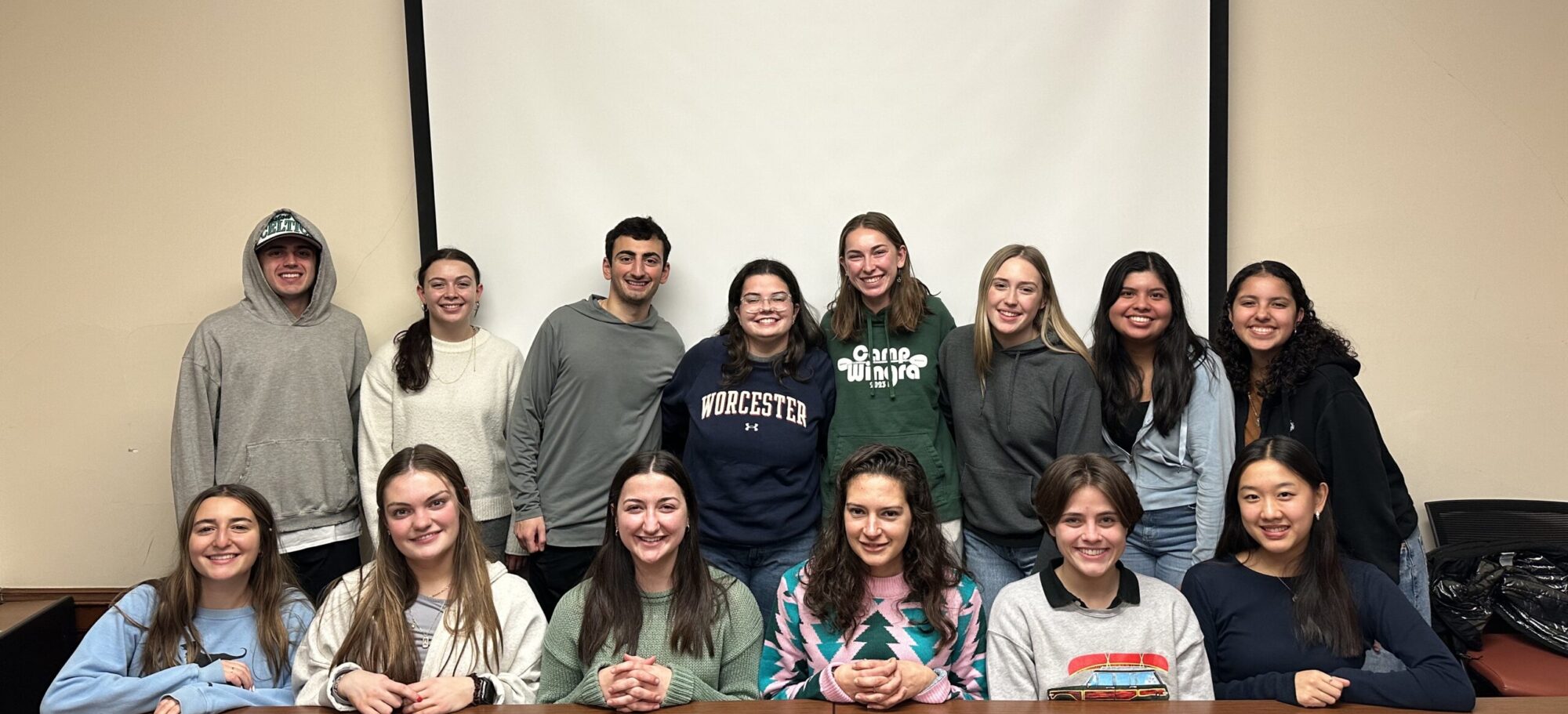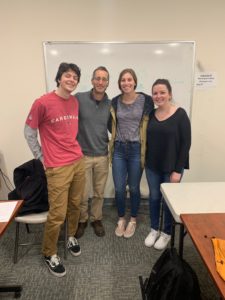
The Donelan Office thanks our senior CBL Interns for their service to our office, to the Holy Cross campus, Worcester, and beyond. Our senior Interns are: Mattie Carroll ’19, Maya Collins ’19, Kara Cuzzone ’19, Caroline O’Connor ’19, and Jerome Siangco ’19. Their efforts and engagement have expanded and deepened the work of our office greatly. Each of the seniors has facilitated reflection sessions, planned Donelan Office events, collaborated with community partners, advised and supported CBL students, served as role models to their fellow CBL Interns and peers, and served as inspiration to us and to so many throughout their years at Holy Cross. It has been an honor and a privilege to work with these students. We will miss them greatly but are also excited to see them take their next steps and continue to enact change. Continue reading for reflections from the seniors on what they are taking away from their time as CBL Interns.
Mattie: The CBL Intern Program has led me to grow as a person and leader. Being an Intern has helped me to realize my own leadership capacities and has pushed me to develop my understanding of the issues I am passionate about in Worcester and beyond. CBL Interns have become a community of people that I look to in times of struggle and in times of great joy throughout these past years. We have pushed each other and supported each other (and eaten many delicious cookies together) in the CBL Office. I could not be more grateful for all that the CBL program has given me and I know that going forward I desire to build community with those around me, no matter where I find myself.
Maya: As I enter the real world into a clinical research coordinator role, I hope to take with me from the CBL Intern Program the sense of community and support I was so lucky to have in my time at Holy Cross. I don’t think that the Donelan staff and other Interns realize how much they inspire me and how much their work means to the Holy Cross and Worcester communities. Ending my time with this program and cohort of Interns is one of the hardest things to leave behind at Holy Cross, so I hope to create a similar support system in my new job. That being said, the knowledge I have gained from the role will last always, so I hope to take a critical, social justice lens to all that I do and be with others, not just for them.
Kara: During my time as a CBL Intern, I have grown more than I could have ever imagined. Initially, I sought out the program in the hope of connecting with other students who were passionate about social justice. What I didn’t realize, however, was how much this community would help me hone my leadership skills. Their support and guidance has allowed me to take ownership of who I am and become a strong, confident leader in the process.
Caroline: Through my involvement with the CBL Intern Program, I have learned more than I would have ever thought possible. I have been afforded the opportunity to build transformative relationships with other Interns, community partners, and faculty and staff. These relationships have prompted me to develop a more critical consciousness about our world, our structures, and the way that I exist within them. I have been encouraged and supported in finding my voice, and using it to question the perpetuation of problematic policies and systems. Most importantly, I have found a home among some of the most compassionate, intelligent, loving, and supportive individuals I have ever met. As I move into the real world, I carry with me all that I have learned from each person that I have met through my experience with CBL. For all of this, I will be eternally grateful.
Jerome: From the CBL Intern program, I will take with me the humility to lead. Thinking of the process to become an Intern, I talked about my achievements and how I would be a good CBL Intern. As an Intern, I had opportunities to speak on panels, and with the Board of Trustees and other College guests. What I take away is not my persuasiveness, but rather the unease I felt during each experience. The unease came from me wanting to listen to what others had to say, rather than share my own experience. I realize now that this unease I felt was me wanting to be humble. As a CBL Intern, I grew an awareness of my own humility and how being humble is an important leadership trait. I am humbled and thankful for how the CBL Intern program has shaped me into the graduating senior I am today.




